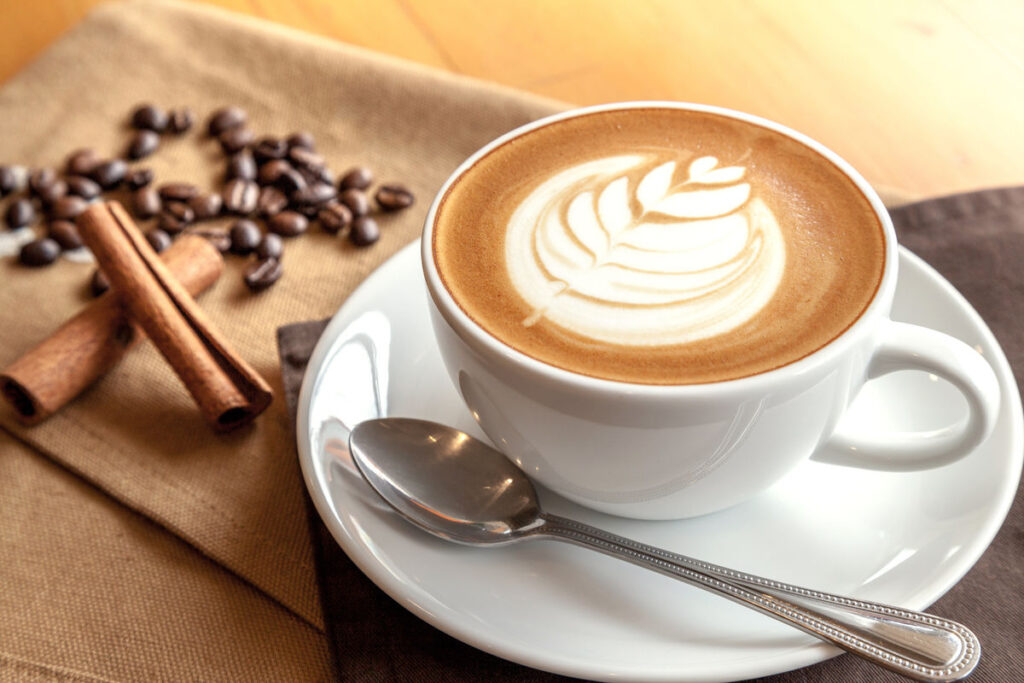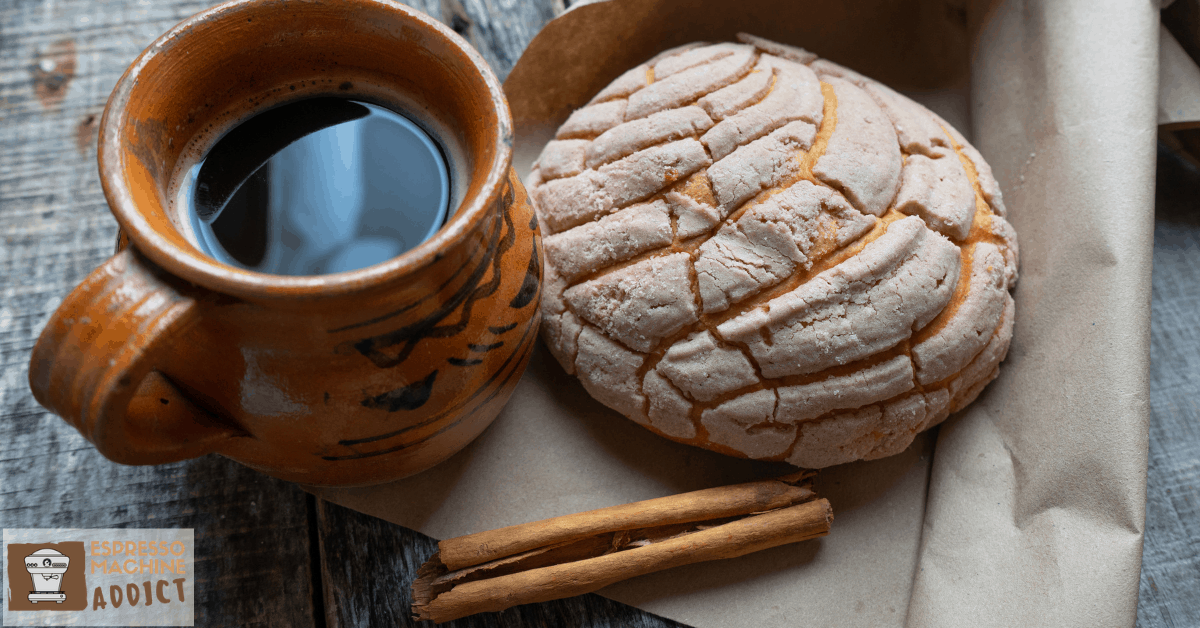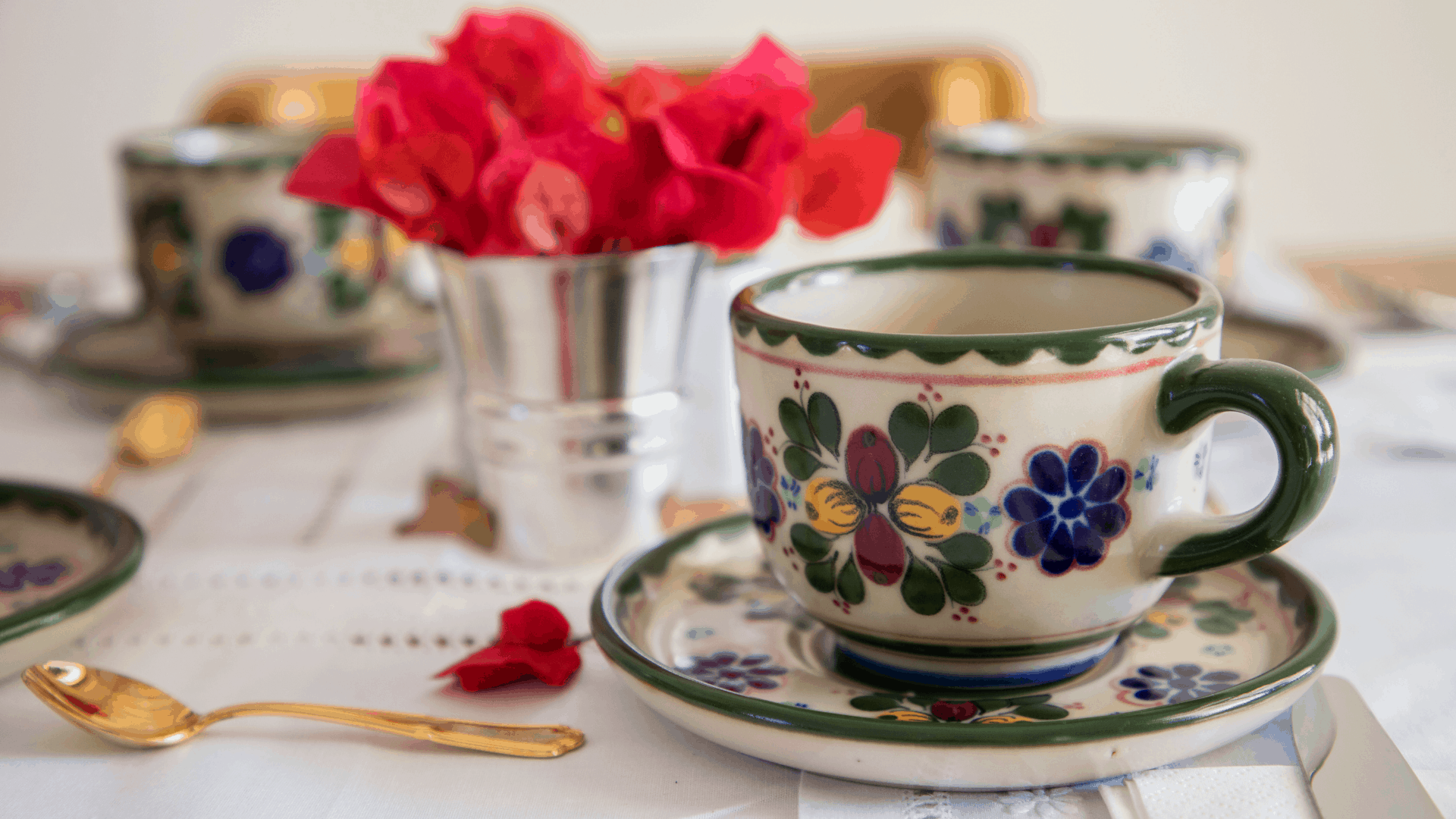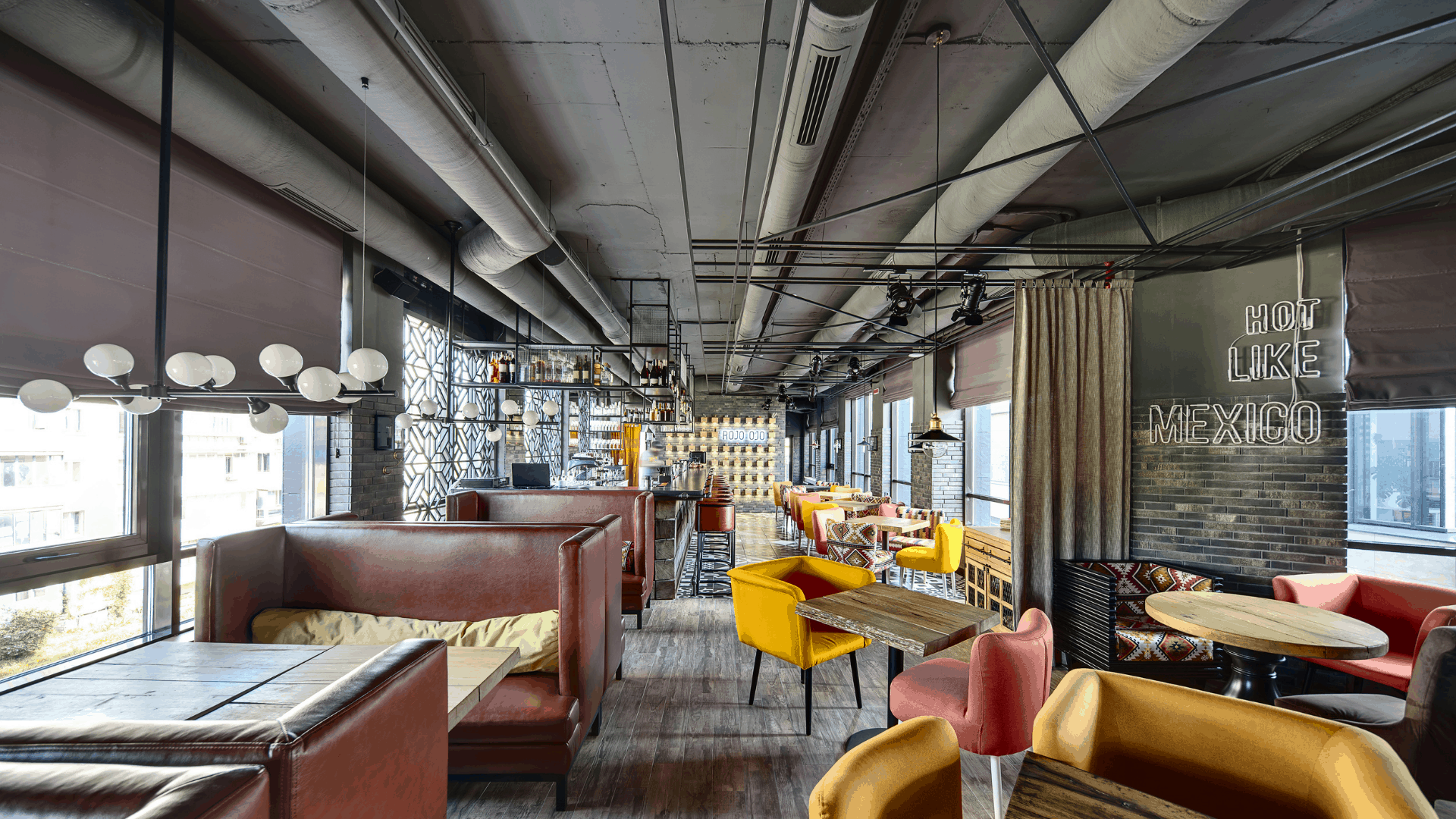So, have you ever wondered what makes Mexican coffee so special? Well, let me tell you, it’s not just about the taste. When you visit Mexico, you’re not just embarking on a vacation, you’re embarking on a journey through its rich coffee culture. From the small mountain villages where coffee beans are grown, to the bustling cafes in the cities, Mexico offers a coffee experience like no other.
When it comes to coffee, Mexico has a long and prestigious history. The country is known for its high-quality Arabica beans, which are grown in regions with ideal climates and fertile soil. These beans are hand-picked by local farmers, who have been perfecting their craft for generations. The care and attention that goes into producing Mexican coffee is evident in every sip. And let me tell you, once you taste it, you’ll understand why it’s considered some of the best in the world.
But it’s not just the coffee itself that makes Mexico’s coffee culture so special, it’s also the way it is enjoyed. Mexican coffee is more than just a morning pick-me-up, it’s a social experience. In the bustling city streets, you’ll find cafes filled with locals and tourists alike, enjoying a cup of coffee and engaging in lively conversations. And in the small mountain villages, coffee is often enjoyed as a part of daily life, with families coming together to share stories and laughter over a steaming cup. So, if you’re a coffee lover or even just someone who appreciates a rich cultural experience, a journey through Mexico’s coffee culture is a must. In our upcoming article, we’ll dive deeper into the fascinating world of Mexican coffee, exploring the different regions, the brewing techniques, and the unique traditions that make it so special. Trust me, you won’t want to miss it.

History of Coffee in Mexico
Origins of coffee cultivation in Mexico
Coffee was first introduced to Mexico in the late 18th century, during the colonial period. The seeds were brought by Spanish colonizers, who saw the potential of coffee cultivation in the rich and fertile soils of Mexico. The first coffee farms were established in the southern states of Veracruz and Chiapas, where the climate and altitude were favorable for growing the coffee plant.
Importance of coffee in Mexican culture
Since its introduction, coffee has become an integral part of Mexican culture. It is not just a beverage, but a social and cultural institution in the country. Mexicans have a strong coffee culture, with daily rituals and traditions associated with the preparation and consumption of this beloved drink. From morning gatherings with family and friends to business meetings and social events, coffee plays a central role in Mexican society.
Significant moments in the development of coffee industry in Mexico
The coffee industry in Mexico has seen remarkable growth and evolution over the years. One significant moment in its development was the establishment of the National Coffee Institute (INMECAFE) in 1917, which aimed to regulate and promote the industry. Another milestone was the creation of the Union of Mexican Coffee Producers (UMCAF) in the 1960s, which helped small-scale farmers collaborate and access international markets. These and other initiatives have contributed to the growth and recognition of Mexican coffee on a global scale.
Varieties of Mexican Coffee
Distinctive flavor profiles of Mexican coffee
Mexican coffee is known for its unique flavor profiles, which vary depending on the region and the altitude at which the coffee is grown. Generally, Mexican coffees have a medium body with a well-balanced acidity. They often exhibit notes of caramel, chocolate, nuts, and sometimes fruity undertones. The flavor profile of Mexican coffee is highly influenced by the country’s diverse microclimates and soil conditions.
Prominent coffee regions in Mexico
Mexico is home to several prominent coffee regions, each with its own distinct characteristics. Some of the major coffee-producing states include Veracruz, Chiapas, Oaxaca, Puebla, and Nayarit. These regions are known for their high-quality Arabica coffee, which is grown under shade trees and harvested by hand.
Notable coffee growing states in Mexico
Veracruz, located in the eastern part of Mexico, is the country’s largest coffee-producing state. It has a long history of coffee cultivation and is known for its balanced and smooth coffee. Chiapas, on the other hand, produces coffee with a heavier body and more pronounced acidity. Oaxaca is renowned for its organic and shade-grown coffee, while Puebla is famous for its unique microclimates that result in diverse flavor profiles. Nayarit, a relatively new player in the Mexican coffee scene, produces coffee with delicate floral and fruity notes.

Traditional Coffee Production Methods
Traditional methods of harvesting coffee cherries in Mexico
In Mexico, coffee cherries are primarily harvested by hand. Skilled workers carefully pick the ripe cherries, ensuring that only the best ones are selected. This labor-intensive process is an essential part of ensuring the quality of Mexican coffee, as it allows for the selective harvesting of beans at their peak ripeness.
Processing techniques and methods of drying coffee beans in Mexico
After harvest, the coffee cherries go through a process called wet processing. The outer skin and pulp are removed, and the beans are washed before being laid out to dry in the sun or on raised drying beds. This process can take up to two weeks, during which the beans are regularly turned to ensure even drying and prevent mold or fermentation.
Roasting traditions and techniques specific to Mexican coffee
In Mexico, coffee roasting is considered an art form. Master roasters carefully control temperature and time to bring out the unique flavors of each batch of coffee beans. Traditional methods, such as wood-fire roasting, are still practiced in some areas, adding a distinct smoky flavor to the coffee. Roasters also experiment with different roast levels, from light to dark, to suit the preferences of Mexican coffee drinkers.
Fair Trade and Sustainable Practices
Impact of fair trade initiatives on Mexican coffee industry
Fair trade initiatives have had a significant impact on the Mexican coffee industry. By guaranteeing fair prices and better living conditions for farmers, fair trade has helped empower small-scale producers and reduce poverty in coffee-growing communities. It has also promoted environmental sustainability by encouraging organic farming practices and biodiversity preservation.
Promotion of sustainability in coffee farming practices in Mexico
Sustainability is a growing focus in the Mexican coffee industry. Many farmers are adopting environmentally friendly practices, such as shade-grown cultivation, organic farming, and water conservation techniques. The promotion of sustainable practices not only helps protect the environment but also ensures the long-term viability of the coffee industry in Mexico.
Certifications and organizations supporting ethical coffee production in Mexico
Various certifications, such as Fair Trade, Rainforest Alliance, and Organic, are available to ensure ethical and sustainable coffee production in Mexico. These certifications provide consumers with assurance that the coffee they purchase meets certain ethical and environmental standards. Additionally, there are organizations like the Mexican Association of Coffee Producers (AMECAFE) that support and promote sustainable farming practices among coffee producers in Mexico.

Traditional Coffee Preparation
Traditional Mexican coffee brewing techniques
In Mexico, coffee is traditionally prepared using a traditional brewing method called “cafetera” or “café de olla.” The cafetera is a stovetop pot that brews coffee by passing water through a filter containing ground coffee. This method produces a strong and aromatic brew, often served black or with a touch of sugar.
Preparation of traditional Mexican coffee beverages
Mexican coffee beverages are rich in flavors and often have unique ingredients. One popular traditional drink is “café de olla,” made by simmering coffee with cinnamon and piloncillo (unrefined cane sugar) in a clay pot. Another famous beverage is “café con leche,” a combination of coffee and warm milk. These traditional drinks are enjoyed throughout the day, especially during breakfast or as an afternoon pick-me-up.
Accompaniments and customs related to coffee drinking in Mexico
In Mexico, coffee is often enjoyed with a variety of traditional pastries, such as “pan dulce” (sweet bread) or “conchas” (shell-shaped sweet bread). It is common for Mexicans to gather with friends or family to share a cup of coffee and engage in conversation. Coffee has a social and communal aspect in Mexican culture, which is deeply ingrained in the country’s traditions.
Famous Mexican Coffee Brands
Introduction to renowned Mexican coffee brands
Mexico boasts several renowned coffee brands that have gained international recognition. Some of the most famous brands include Cafe Britt, Altura Coatepec, Pluma Hidalgo, and Café de la Parroquia. These brands are known for their commitment to quality and their unique flavor profiles, which epitomize the diversity of Mexican coffee.
Unique characteristics of each brand
Cafe Britt is known for its premium, gourmet coffee sourced from small coffee farms across Mexico. Altura Coatepec is famous for its high-altitude coffee, which grows in the shade of citrus trees, resulting in a distinctive flavor. Pluma Hidalgo, named after its origin in the highlands of Oaxaca, offers a smooth and well-balanced coffee experience. Café de la Parroquia, a historic coffeehouse in Veracruz, is renowned for its traditional café con leche and Mexican hospitality.
Stories behind the success of these coffee brands
Each of these coffee brands has a unique story behind its success. Cafe Britt, for example, started as a small family business in Heredia, Costa Rica and expanded to include Mexican coffee in its offerings due to its exceptional quality. Altura Coatepec represents the dedication and hard work of local farmers who have preserved the traditions of growing coffee in the region. Pluma Hidalgo is a testament to the ingenuity and perseverance of small-scale producers in Oaxaca. Café de la Parroquia, with its rich history and loyal clientele, symbolizes the enduring love for coffee among the locals in Veracruz.

Role of Coffee in Mexican Cuisine
Incorporation of coffee in traditional Mexican dishes and desserts
Coffee is not only enjoyed as a beverage in Mexico but also finds its way into traditional dishes and desserts. Mole, a classic Mexican sauce, often includes coffee as one of the ingredients, adding depth and richness to the complex flavors. Coffee is also used in dessert recipes such as Tres Leches cake and flan, providing a subtle hint of bitterness to balance the sweetness.
Coffee-based sauces and marinades in Mexican cuisine
Coffee-based sauces and marinades are another culinary application of coffee in Mexican cuisine. Coffee grounds are often combined with spices, herbs, and seasonings to create flavorful rubs for meats or as a base for savory sauces. The earthy and smoky notes of coffee add complexity and depth to dishes, enhancing the overall taste and aroma.
Coffee-infused beverages and cocktails in Mexican gastronomy
Mexican gastronomy embraces the versatility of coffee by incorporating it into various beverages and cocktails. From coffee liqueurs like Kahlua to refreshing coffee-based cocktails like the Mexican Espresso Martini, there are countless ways to enjoy the flavors of coffee in Mexico. These concoctions are often enjoyed as aperitifs or after-dinner drinks, adding a touch of sophistication and indulgence to any culinary experience.
Coffee Festivals and Events in Mexico
Annual coffee festivals and events celebrated in Mexico
Throughout the year, Mexico hosts numerous coffee festivals and events that celebrate the country’s rich coffee culture. The National Coffee Festival in Coatepec, Veracruz, is one of the most prominent events, featuring coffee tastings, cultural exhibitions, and educational workshops. The Oaxaca Coffee Festival showcases the state’s unique coffee varieties and highlights the cultural heritage of coffee farming. Other notable festivals include the Coffee Expo in Mexico City and the Coffee and Chocolate Festival in Chiapas.
Highlights and attractions of these coffee-centric gatherings
Coffee festivals and events in Mexico offer visitors a chance to immerse themselves in the rich coffee culture of the country. Attendees can explore coffee tastings, cupping sessions, and brewing demonstrations to deepen their appreciation for Mexican coffee. Cultural exhibitions and live performances showcase the traditions and customs associated with coffee in Mexico, while workshops and seminars provide valuable insights into the coffee industry.
Opportunities for locals and tourists to experience Mexican coffee culture firsthand
These coffee-centric gatherings provide unique opportunities for both locals and tourists to experience Mexico’s vibrant coffee culture firsthand. Visitors can interact with local coffee producers, learn about the coffee production process, and taste a wide range of Mexican coffee varieties. The festivals also promote local artisans and offer a platform for them to showcase their coffee-related crafts, such as handcrafted coffee mugs, brewing equipment, and artwork.

Coffee Tourism in Mexico
Exploring coffee plantations and farms in Mexico
One of the highlights of coffee tourism in Mexico is the opportunity to visit coffee plantations and farms. In regions like Chiapas and Veracruz, visitors can embark on guided tours that take them through lush coffee fields, where they can witness the entire coffee production process firsthand. They can also learn about the history and traditions of coffee farming, interact with farmers, and even participate in the coffee harvesting and processing activities.
Coffee tasting and sensory experiences in Mexican coffee tours
Coffee tours in Mexico often include coffee tasting sessions, allowing visitors to sample a variety of Mexican coffee flavors. These sensory experiences help develop a deeper understanding of the different flavor profiles and nuances of Mexican coffee. Knowledgeable guides provide insights into the art of cupping, explaining the aroma, acidity, body, and flavor notes of each cup. It is a sensory journey that engages all the senses and leaves a lasting impression.
Educational workshops and classes on coffee brewing and appreciation
For those who wish to delve even deeper into the world of coffee, educational workshops and classes are available in coffee-growing regions. These workshops cover topics such as coffee brewing methods, latte art techniques, and the art of coffee appreciation. Participants can learn from experienced baristas and coffee experts, gaining valuable skills and knowledge that they can apply to their own coffee brewing at home or in their local coffee shops.
Impact of Coffee Culture on Local Communities
Social and economic significance of coffee production for Mexican communities
Coffee production plays a vital role in the social and economic fabric of many Mexican communities. It provides employment opportunities and income for countless farmers and their families. The revenue generated from coffee sales also contributes to the overall development of these communities, providing funds for education, healthcare, and infrastructure improvements. Coffee production is not just a livelihood but a source of pride and identity for many Mexicans.
Supporting local producers and artisans through coffee purchases
By choosing to purchase Mexican coffee, consumers can directly support local producers and artisans. Buying coffee that is sourced from small-scale farmers ensures that they receive fair prices for their hard work and dedication. Additionally, purchasing coffee-related products, such as handcrafted coffee mugs or coffee-inspired artwork, supports local artisans and promotes their traditional craftsmanship.
Preserving cultural heritage and promoting community development through coffee initiatives
Coffee initiatives in Mexico often go beyond just the production of coffee. They aim to preserve the cultural heritage associated with coffee farming and promote community development. Projects focusing on education, training, and infrastructure improvement empower local communities and create sustainable futures. These initiatives ensure that the rich coffee traditions and customs of Mexico are passed down to future generations, preserving a crucial part of the country’s cultural identity.
Challenges Faced by Mexican Coffee Industry
Climate change and its impact on coffee cultivation in Mexico
One of the major challenges facing the Mexican coffee industry is climate change. Rising temperatures, unpredictable rainfall patterns, and increased pest and disease pressure are affecting coffee production in many regions. Farmers are facing the need to adapt to these changing conditions, implementing strategies such as shade tree planting, soil conservation, and improved irrigation systems.
Economic struggles and market competition affecting Mexican coffee industry
The Mexican coffee industry also faces economic struggles and market competition. Fluctuating global coffee prices and the increasing dominance of large multinational coffee companies pose challenges for small-scale producers. Additionally, competition from other coffee-producing countries puts pressure on Mexican coffee growers to improve quality and differentiate their products to remain competitive in the global market.
Efforts and solutions to overcome these challenges
Despite the challenges, the Mexican coffee industry is resilient and adaptable. Various organizations, cooperatives, and government initiatives are working to support farmers, provide training, and improve access to international markets. Research and development efforts are focused on developing coffee varieties that are more resistant to climate change and pests. By investing in sustainable farming practices and promoting the unique flavor profiles of Mexican coffee, the industry is finding innovative solutions to overcome these challenges.
Emerging Trends in Mexican Coffee Culture
Introduction to modern coffee trends and innovations in Mexico
Mexico’s coffee culture is evolving to embrace modern trends and innovations. Artisanal coffee shops and specialty coffee culture are gaining popularity, especially in urban areas. These establishments focus on sourcing high-quality beans, offering unique brewing methods, and providing a personalized coffee experience for customers. The growing interest in specialty coffee is driving innovation and creativity in the Mexican coffee scene.
Artisanal coffee shops and specialty coffee culture in urban areas
Artisanal coffee shops and specialty coffee culture have become a common sight in Mexican cities like Mexico City, Guadalajara, and Monterrey. These establishments prioritize quality over quantity, often sourcing single-origin beans directly from local farmers. Baristas are highly trained in various brewing techniques and offer a wide range of coffee options, from pour-over to espresso-based beverages. They also emphasize the importance of educating customers about the art of coffee brewing and the unique flavors of Mexican coffee.
Exploring new flavor profiles and experimental blends
As the specialty coffee movement gains momentum in Mexico, roasters and coffee connoisseurs are exploring new flavor profiles and experimental blends. They are pushing the boundaries of traditional Mexican coffee, experimenting with different roast levels, processing methods, and coffee varietals. This exploration of flavors and techniques not only adds diversity to the Mexican coffee market but also positions Mexico as an innovator in the global specialty coffee industry.
Coffee as a Symbol of Mexican Identity
Cultural significance of coffee in Mexican identity and expression
Coffee holds deep cultural significance in Mexican identity and expression. It symbolizes hospitality, warmth, and the art of conversation. The act of sharing a cup of coffee with someone is seen as a gesture of friendship, trust, and community. Coffee has become ingrained in the daily lives of Mexicans, reflecting their values of connection, tradition, and enjoyment of life’s simple pleasures.
Coffee-related art, poetry, and literature in Mexico
Coffee has inspired numerous works of art, poetry, and literature in Mexico. Writers and poets have dedicated verses to extol the virtues of coffee and the emotions it evokes. Painters have captured the beauty and vibrancy of coffee culture in their artwork. Coffeehouses have been the meeting places for intellectuals, artists, and revolutionaries, fueling creativity and discussions that have shaped Mexican culture.
Coffee rituals and traditions associated with Mexican cultural heritage
Many rituals and traditions are associated with coffee in Mexican cultural heritage. From the preparation of café de olla with the traditional clay pot to the intimate gatherings around the kitchen table, coffee rituals connect people to their roots and create a sense of belonging. These rituals transcend generations, bringing families and communities together in celebration of their shared heritage.
Conclusion
Mexico’s rich coffee culture is a journey worth exploring. From the origins of coffee cultivation to the emergence of artisanal coffee shops, Mexico offers a diverse and vibrant coffee experience. By delving into the distinctive flavors, traditional preparation methods, and cultural significance of coffee, you can truly appreciate and understand the depth of Mexico’s coffee heritage. So next time you brew a cup of coffee, take a moment to imagine the journey it has taken from the coffee farms of Mexico to your cup, and savor every sip, knowing that you are immersing yourself in centuries of coffee tradition and culture.
